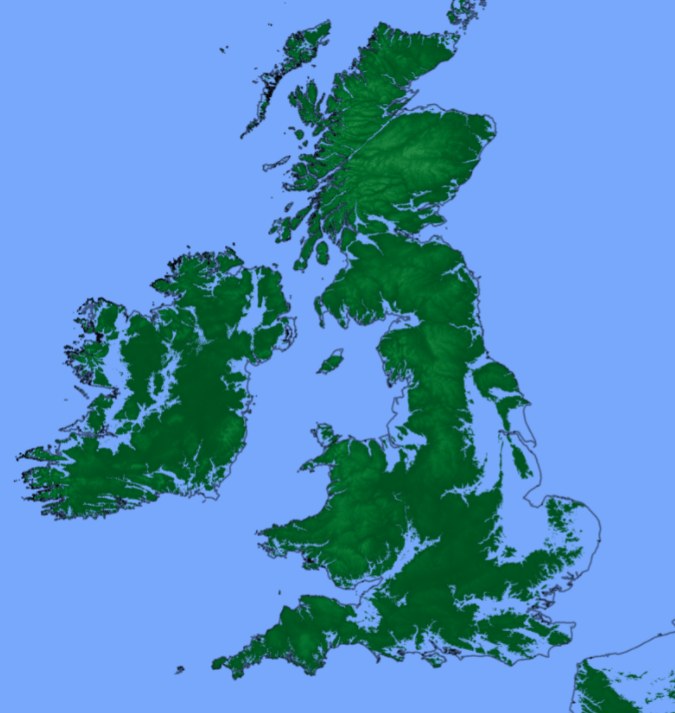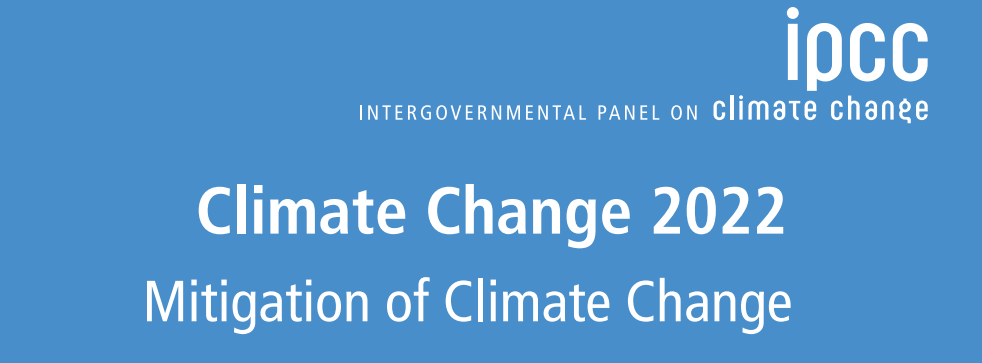Part 1 of a 2-part article on the climate crisis
By John Pickard
The news coming from the war in Ukraine has overshadowed what is still the most pressing threat to humanity in this century – climate change. We may be facing the most severe squeeze in living standards for fifty years, but coming to terms with a much warmer planet may in the end cost everyone a great deal more.
This week, the latest report from the United Nations International Panel on Climate Change (IPCC) was released. The key message coming out of the report is that while the rate of increase is reduced, total emissions of greenhouse gases are still rising, not falling. Global emissions in 2019 were 12% higher than in 2010, an average of 1.3% per year over the decade.
Another important theme of the report is that governments across the world are failing to promote the changes necessary to avert catastrophic climate change. It suggests that our current trajectory, if unchanged, would lead to a global average temperature increase of 3.2oC, a figure that would make significant sea level rise inevitable, as well as disastrous and damaging ‘extreme climatic’ events. Even if all the plans and promises currently in place were put into effect – and currently they are not – it would not limit the warming to 1.5oC, which was the original target, but more likely keep it to 2.2oC.
The only policy that would keep the warming trajectory to 1.5oC would be an extremely ambitious and urgent shift away from fossil fuels, cutting carbon fuels by half during this decade, and cutting 95% of coal, 60% of oil and 45% of gas by 2050. Jim Skea, a professor at Imperial College London and co-chair of the working group behind the report, told the Guardian: “It’s now or never, if we want to limit global warming to 1.5C. Without immediate and deep emissions reductions across all sectors, it will be impossible.”
“Governments and businesses are lying…”
It was only a few week ago that there were reports in the press of record high temperatures at both the North and the South Poles. In the Antarctic, temperatures were in some places a jaw-dropping 40oC above the norm, while in the Artic, weather stations were reporting some temperatures at 30oC above normal.

The two largest land-based masses of ice on the planet are the Greenland and the Antarctic ice sheets. It may not affect our own generation immediately – unlike extreme weather anomalies and food shortages – but the melting of both of these ice sheets, which is a feasible end-of-century scenario, promises a massive rise in sea levels, with disastrous consequences for billions of the Earth’s population, many of whom live near coastlines or on low-lying land.
“We are on a fast track to climate disaster”, Antonio Guterres, Secretary-General of the UN, said when he released the IPCC report. But it is what was in his next sentence that is so important. “Some government and business leaders are saying one thing but doing another. Simply put, they are lying… High-emitting governments and corporations are not just turning a blind eye. They’re adding fuel to the flames, they are choking our planet based on their vested interests and historic investments in fossil fuels.”
Instead of the war in Ukraine leading to a reduction in the use of coal, oil and natural gas – with sanctions imposed on Russian exports – the war has created a rush on suggestions for the exploitation of new carbon sources, including new coal mines. Yet, as Guterres said, “Investing in new fossil fuel infrastructure is moral and economic madness,”.
Aramco planning to increase oil output
As a perfect example of that madness, we have the giant Saudi Arabian oil company, Aramco, planning to increase its already massive oil output. The New York Times (March 22) reported, “Aramco, the world’s largest oil company, says it plans to use its enormous profits from last year to double down on boosting oil output capacity and move into shale drilling, which has transformed the oil industry in the United States.” Aramco will be investing $50bn this year, not on renewables, which would make a lot more sense in a country not short on sunshine, but on oil production and on shale-oil drilling.
Where governments, corporations and the big banks ought to be investing in renewables and non-carbon technology, all the evidence suggests that they are continuing blithely on, putting their money where the greatest short term profits are to be found, and that is still, unfortunately, in oil, coal and gas. A report on the BBC website in February noted that the big banks are putting huge amounts of money into fossil fuels.
“Big banks are pumping billions into new oil and gas production despite net zero pledges”, the BBC says. Banks like HSBC, Barclays and Deutsche Bank are part of a so-called ‘green’ banking group called the Net Zero Banking Alliance, but that has not prevented them investing hugely in fossil fuels. The Net Zero Banking Alliance is a perfect example of ‘greenwashing’.

Referring to the campaign group, ShareAction, the BBC explained that, “HSBC put an estimated $8.7bn (£6.4bn) into new oil and gas in 2021, while Barclays put in $4.5bn, and Deutsche Bank loaned $5.7bn, the campaign group estimated…The fossil fuel giants receiving the funding included Exxon Mobil, Shell, BP, and Saudi Aramco”.
IPCC report was changed under pressure from oil producers
Those who have trashed the planet cannot pretend to be its saviours. Indeed, the IPCC report that was published was censored as a result of the pressures applied by Big Oil. Whereas the IPCC ‘technical report’ stands in the name of the scientists and is published unaltered (and largely unread, except by other scientists), the ‘Summary for Policymakers’ – which is the version of the report that goes to the press – had to be approved by government representatives from within the UN before its publication and was therefore subject to change.
According to Climate Home News, “sources close to the negotiations” reported on the effects of Saudi pressure in the longest-even plenary session of representatives, lasting all of 40 hours. To begin with, the language was watered down, as references to shifting away from the use of coal, oil and gas were qualified with the word “unabated”. Another important qualification was the insertion of a whole section on Carbon Capture and Storage, which is seen as a ‘get out clause’ for the oil industry.
CCS is a completely untried technology, except on a small pilot-scale level and it is untried on anything like the scale that would be required to deal with Gigatonnes of carbon dioxide. But however remote the application of CCS is, as long as it even appears to be on the table as a feasible option, it has become a token ‘technological fix’, a pretext for the fossil industry to steam ahead pumping carbon into the atmosphere and dollars into their accounts.
Climate change emergency reinforces the need for systemic social change
The IPCC report reinforces for socialists that the urgent need to change society is not merely a means to stop the squeeze on living standards today. It is a fight for the future, indeed, the only viable future for humanity. Short-term profit, greed, corruption and above all keeping the mechanics of these things secret, are the hallmarks of capitalism, the so-called ‘free market’. It is a system where tomorrow’s profits will always beat long-term needs, a system rigged in the interests of a tiny and insignificant proportion of the global population. It is a system that has outlived its time. Saving the planet means changing the system, or it means nothing at all.
Part 2, to be posted in due course, will deal specifically with the UK government’s energy policy which is published today.



